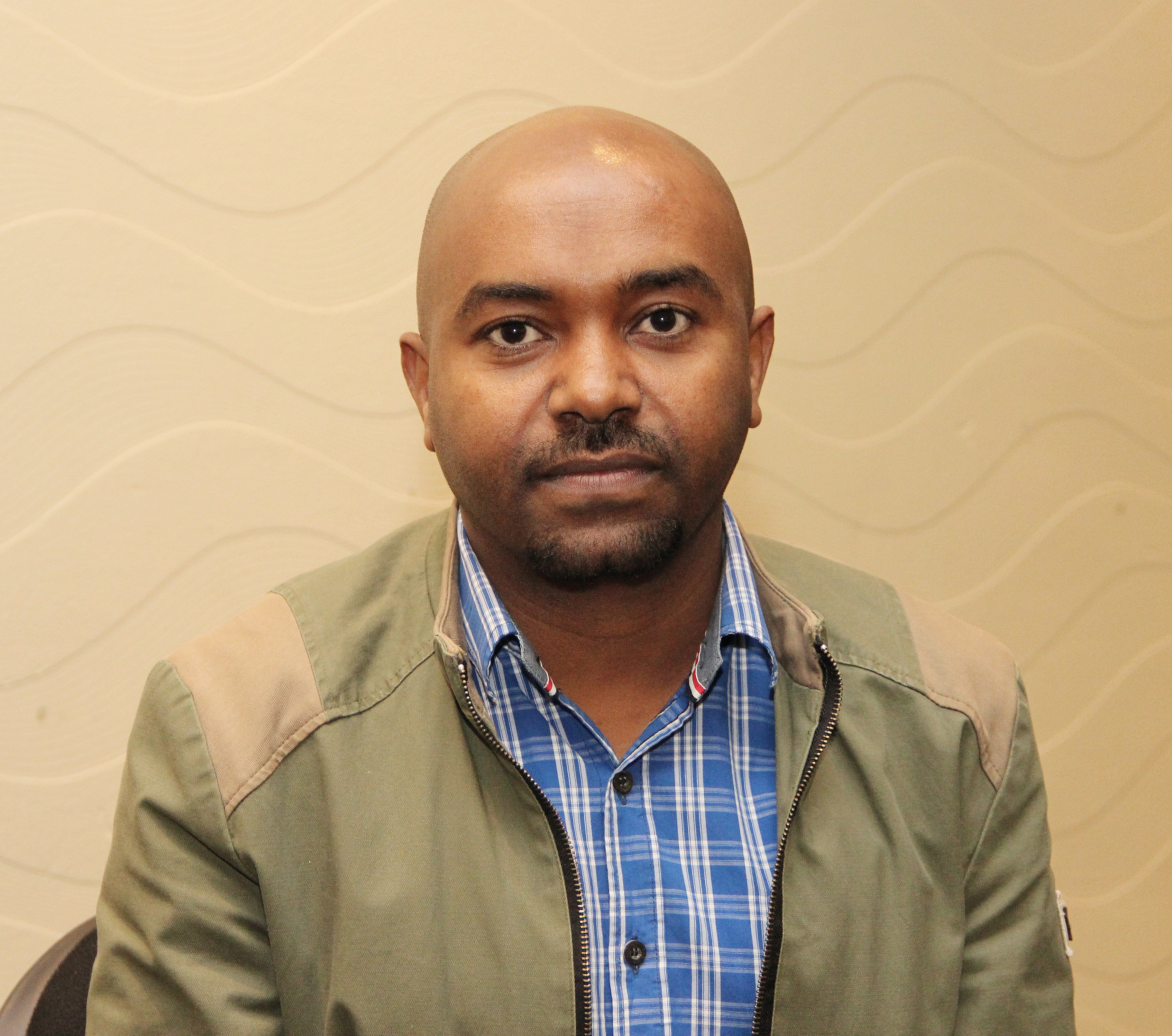

Dr
Solomon Abay
Current Organisation
Addis Ababa University
Current Job Title
Associate Professor
Biography
Publications
Introduction: Leishmaniasis is a collective term used to describe various pathological conditions caused by an obligate intracellular protozoan of the genus Leishmania. It is one of the neglected diseases and has been given minimal attention by drug discovery and development stakeholders to narrow the safety and efficacy gaps of the drugs currently used to treat leishmaniasis. The challenge is further exacerbated by the emergence of drug resistance by the parasites.
Methods: Aiming to look for potential anti-leishmanial hits and leads, we screened Medicines for Malaria Venture (MMV) Pathogen Box compounds against clinically isolated Leishmania donovani strain. In this medium-throughput primary screening assay, the compounds were screened against promastigotes, and then against amastigote stages.
Results: From the total 400 compounds screened, 35 compounds showed >50% inhibitory activity on promastigotes in the initial screen (1 μM). Out of these compounds, nine showed >70% inhibition, with median inhibitory concentration (IC50) ranging from 12 to 491 nM using the anti-promastigote assay, and from 53 to 704 nM using the intracellular amastigote assay. Identified compounds demonstrated acceptable safety profiles on THP-1 cell lines and sheep red blood cells, and had appropriate physicochemical properties suitable for further drug development. Two compounds (MMV690102 and MMV688262) were identified as leads. The anti-tubercular agent MMV688262 (delamanid) showed a synergistic effect with amphotericin B, indicating the prospect of using this compound for combination therapy.
Conclusion: The current study indicates the presence of additional hits which may hold promise as starting points for anti-leishmanial drug discovery and in-depth structure-activity relationship studies.
Oxidative stress is a common feature of tuberculosis (TB), and persons with reduced antioxidants are at more risk of TB. TB patients with relatively severe oxidative stress had also more advanced disease as measured by the Karnofsky performance index. Since adverse effects from anti-TB drugs are also mediated by free radicals, TB patients are prone to side effects, such as hearing loss. In previous articles, researchers appealed for clinical trials aiming at evaluating N-acetyl cysteine (NAC) in attenuating the dreaded hearing loss during multidrug-resistant TB (MDR-TB) treatment. However, before embarking on such trials, considerations of NAC's overall impact on TB treatment are crucial. Unfortunately, such a comprehensive report on NAC is missing in the literature and this manuscript reviews the broader effect of NAC on TB treatment. This paper discusses NAC's effect on mycobacterial clearance, hearing loss, drug-induced liver injury, and its interaction with anti-TB drugs. Based on the evidence accrued to date, NAC appears to have various beneficial effects on TB treatment. However, despite the favorable interaction between NAC and first-line anti-TB drugs, the interaction between the antioxidant and some of the second-line anti-TB drugs needs further investigations.
Objective: Preschool age children (PSAC) are excluded from community based praziquantel treatment programs mainly due to paucity of evidence on the magnitude of schistosomiasis, efficacy and safety of this treatment in PSAC. The aim of this study is to assess Schistosoma mansoni infection rate and evaluate response to praziquantel in PSAC. A facility based longitudinal study was employed from April to June 2016 at Erer Health Center, Eastern Ethiopia. Stool sample was examined for schistosomiasis in 236 PSAC and repeated after 4 weeks post-treatment in positive individuals. Treatment outcomes were recorded and interpreted.
Results: Out of the 236 study participants, 59 (25%) were infected with S. mansoni. Praziquantel treatment (40 mg/kg) resulted in 96.4% cure rate and 99.4% egg reduction rate. Children of 3-5 year old were significantly affected with S. mansoni infection. Nausea and fatigue were common mild adverse events within 4 h of treatment however moderate and severe adverse events and allergic reactions were not observed. In conclusion, praziquantel at 40 mg/kg, the dose utilized in standard care for school age children, is tolerable and efficacious in the treatment of S. mansoni infection in PSAC, which calls for the healthcare system to provide appropriate service for this population.
Objective: Preschool age children (PSAC) are excluded from community based praziquantel treatment programs mainly due to paucity of evidence on the magnitude of schistosomiasis, efficacy and safety of this treatment in PSAC. The aim of this study is to assess Schistosoma mansoni infection rate and evaluate response to praziquantel in PSAC. A facility based longitudinal study was employed from April to June 2016 at Erer Health Center, Eastern Ethiopia. Stool sample was examined for schistosomiasis in 236 PSAC and repeated after 4 weeks post-treatment in positive individuals. Treatment outcomes were recorded and interpreted.
Results: Out of the 236 study participants, 59 (25%) were infected with S. mansoni. Praziquantel treatment (40 mg/kg) resulted in 96.4% cure rate and 99.4% egg reduction rate. Children of 3-5 year old were significantly affected with S. mansoni infection. Nausea and fatigue were common mild adverse events within 4 h of treatment however moderate and severe adverse events and allergic reactions were not observed. In conclusion, praziquantel at 40 mg/kg, the dose utilized in standard care for school age children, is tolerable and efficacious in the treatment of S. mansoni infection in PSAC, which calls for the healthcare system to provide appropriate service for this population.
Project Title
Novartis Institute for Biomedical Research (NIBR), Switzerland
EDCTP Project
TMA2014-434
EDCTP Program
EDCTP2
EDCTP Project Call
EDCTP Clinical Research & Development Fellowship (R&D F)
Host Organisation
| Department | Institution | Country |
|---|---|---|
| Addis Ababa University (AAU) | ET |
Project Objectives
The specific objectives included understanding the following areas with active involvement: • Clinical trial process and its milestones, from set-up to reporting • Sponsor’s organization and expectations from an investigator, and • Scientific background of clinical trials and how the results from a clinical trial directly impact the labelling/scientific development. • Gaining transferable skills to home institute.
Study Design
Placement
Project Summary
This fellowship aimed to support the Fellow to acquire skills in clinical research and development through a placement in Novartis Institutes for Biomedical Research (NIBR). The fellowship had training and re-integration phase work packages.
Results & Outcomes
Project Title
Optimization of praziquantel therapy for Schistosoma mansoni infection in preschool-aged children in Ethiopia: PrazOpt
EDCTP Project
TMA2018CDF-2345
EDCTP Program
EDCTP2
EDCTP Project Call
Career Development Fellowship (CDF)
Host Organisation
| Department | Institution | Country |
|---|---|---|
| CDT-Africa | Addis Ababa University | ET |
Project Objectives
Primary Objective: The primary objective of this study is to determine curative rate of praziquantel 40 mg/kg single dose in S. mansoni infection in preschool-aged children. Secondary objectives of this clinical research are to: - Determine egg reduction rate - Assess safety outcomes (adverse events) - Estimate pharmacokinetic parameters - Assess polymorphisms of gene for praziquantel metabolizing enzymes - Identify correlates of curative outcome.
Study Design
This study is a prospective observational study which assesses treatment outcome of S. mansoni infected preschool-aged children who got praziquantel treatment. So, the study doesn’t have any interventions except collection of biological specimen for safety and efficacy evaluations.
Project Summary
Schistosomiasis is a worldwide public health problem, particularly in sub-Saharan Africa where approximately 90% of the infections are found. Schistosomiasis treatment and control relies largely upon therapy with praziquantel directed primarily at school-aged children (SAC) living in schistosomiasis-endemic areas. Even though the occurrence of schistosomiasis within African preschool-aged children (PSAC) has been much better documented in recent years an important burden of disease previously overlooked, only SAC are the principal target group of preventive chemotherapy with praziquantel because of the limited information on efficacy and safety in PSAC and the wrong thought of PSAC to be at low risk of schistosomiasis. A recent study revealed that praziquantel has a flat dose (20-60 mg/kg)-response and overall lower efficacy in PSAC compared with in SAC.The extrapolation of SAC and adult praziquantel dosages to PSAC may not provide good estimates in view of the maturational differences in absorption, metabolism and elimination. The aforementioned findings show the need to have additional studies to generate evidence that is able to provide ultimate dosing recommendations of praziquantel for PSAC, based on inputs from pharmacokinetic, pharmacogenetic data and intensity of S. mansoni infections. To this account, our research team proposes a study titled “Optimization of praziquantel therapy in preschool-aged children infected with S. mansoni: PrazOpt” to be executed with the financial support from EDCTP2 under the scheme of Career Development Fellowship 2018.


